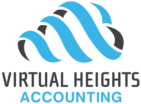Cash flow is critical to the success of any business, big or small. As a small business owner, tracking cash flow is essential to ensure that you have enough money to pay bills, invest in growth, and prepare for unexpected expenses. Here are some tips to help you track your cash flow and why it’s important.
1. Monitor your income and expenses regularly
Keeping a close eye on your income and expenses is key to understanding your cash flow. This means tracking all the money coming in and going out of your business on a regular basis. You can use tools such as spreadsheets, accounting software (like Xero Accounting Software for example), or a simple ledger to keep track of your finances.
2. Know your cash flow cycle
Your cash flow cycle refers to the time it takes for your business to receive payment from a customer, pay its bills, and then receive payment from the next customer. Understanding your cash flow cycle helps you plan for any short-term cash crunches and make adjustments as necessary.
3. Predict future cash flow
One of the key benefits of tracking your cash flow is the ability to predict future cash flow. This can help you plan for future expenses and ensure that you have enough cash on hand when you need it. To do this, you can use financial projections and budgeting to estimate your future income and expenses. If you use accounting software (like Xero) you can add these budgets right into the software and track them against your actuals as you go.
4. Manage accounts payable and receivable
Managing your accounts payable and receivable is critical to maintaining positive cash flow. Make sure you keep track of all the money you owe and all the money that is owed to you. This will help you stay on top of your bills and ensure that you are paid on time.
5. Monitor bank balances and account activity
Checking your bank balance regularly is important to understanding your cash flow. It’s also important to monitor your account activity to identify any unusual transactions and address any potential issues quickly.
Want to know more? You may also be interested in this article on how a Business Accountant can help Manage Your Money.
In conclusion, tracking cash flow is essential for small business owners to ensure that their business remains financially stable. By monitoring your income and expenses, predicting future cash flow, managing accounts payable and receivable, and monitoring bank balances and account activity, you can ensure that your business stays on track and achieves long-term success.
Virtual Heights Accounting is a CPA firm that operates in the virtual world. We provide virtual accounting, Virtual CFO and Virtual Controller services for your growing Company. Contact us at www.vhaccounting.ca/contactus or follow our blog on your chosen social media source.





